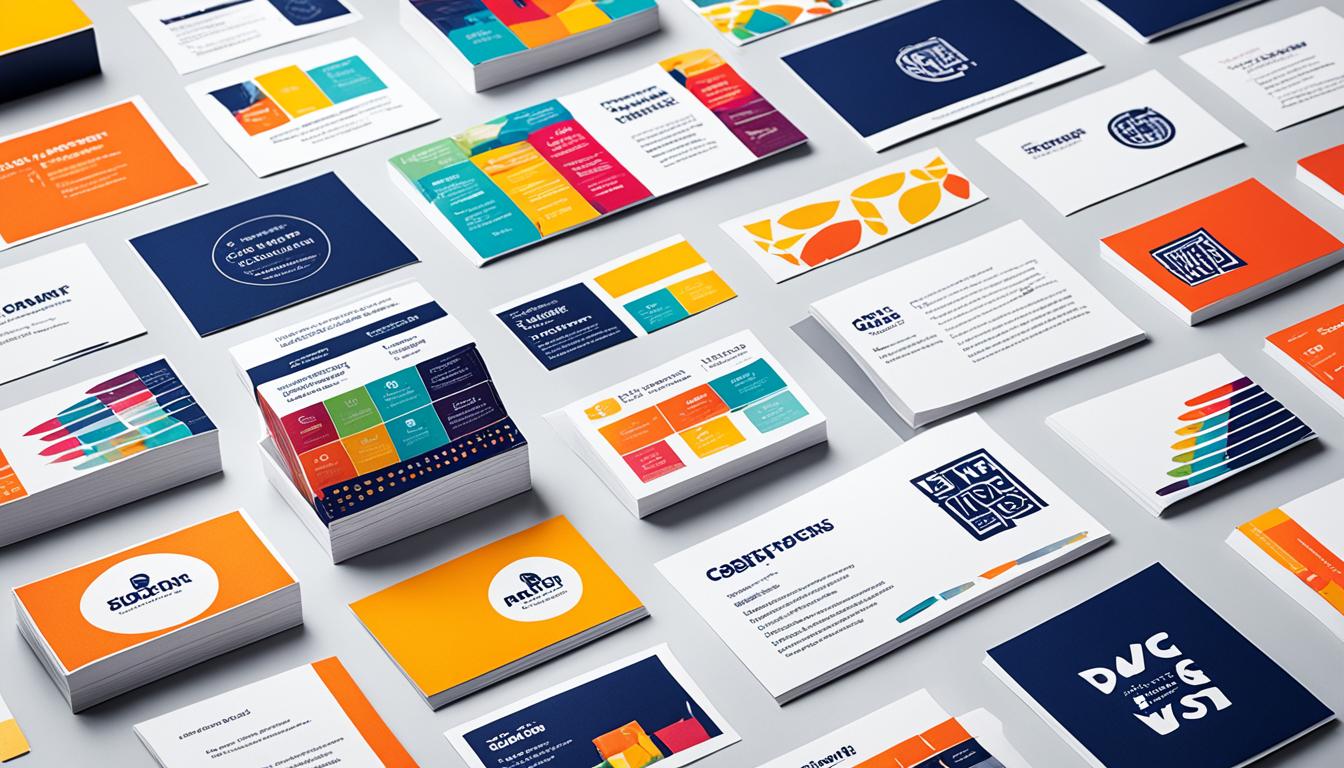When it comes to organizing a successful carnival, a well-planned marketing strategy is essential. Effective carnival promotion strategies can significantly impact attendance and maximize return on investment (ROI). By strategically planning your carnival’s marketing activities, you can attract a larger audience and create a memorable experience for attendees. In this article, we will explore top tactics and tips for creating a marketing strategy that boosts carnival attendance and generates positive results.
Key Takeaways:
- Strategically plan your marketing activities to boost carnival attendance.
- Utilize innovative marketing strategies to stand out in the modern carnival industry.
- Leverage social media and influencer partnerships to reach a wider audience.
- Promote environmental sustainability to showcase your carnival’s commitment to the environment.
- Showcase carnival destinations and enhance the guest experience with location-specific activities.
Innovative Marketing Strategies for Modern Carnivals
When it comes to promoting modern carnivals, traditional marketing tactics may not be enough to capture the attention of today’s audience. In order to stand out in a crowded market and create a memorable experience, carnival organizers need to employ innovative marketing strategies that are forward-thinking and cutting-edge.
One of the key aspects of modern carnival marketing is the integration of immersive experiences. By creating an environment that fully engages all the senses, carnivals can offer a unique and memorable experience for attendees. This could include interactive elements such as virtual reality rides, augmented reality games, or even 3D projection mapping to bring the carnival to life.
Another crucial element of modern carnival marketing is the use of interactive technologies. This could include mobile apps that provide real-time updates on ride wait times, digital photo booths for instant social media sharing, or RFID wristbands that allow attendees to seamlessly make purchases throughout the event.
Branding is also an important consideration for modern carnivals. By developing a strong and cohesive brand identity, carnivals can create a differentiation in the market and build a loyal following. This could include unique and eye-catching logos, clever slogans, or even mascot characters that become synonymous with the carnival.
Successful carnival brands have embraced innovative marketing strategies to differentiate themselves from the competition. For example, the iconic brand XYZ Carnival has implemented a creative campaign that combined traditional advertising with modern digital channels. Through targeted social media ads and influencer partnerships, they reached a wide audience, resulting in increased attendance and brand recognition.
By adopting these innovative marketing strategies, modern carnivals can capture the attention of their target audience and create a buzz around their events. Whether through immersive experiences, interactive technologies, or unique branding initiatives, forward-thinking carnival marketing approaches are vital for success in today’s competitive landscape.
Leveraging Social Media and Influencer Partnerships
In today’s digital age, social media has become a powerful tool for marketing and promotion. For carnivals, leveraging social media platforms and influencer partnerships can significantly enhance their reach and impact. By effectively utilizing social media marketing for carnivals, organizers can connect with their target audience, create buzz, and drive attendance to their events.
Utilizing AI Influencers in Carnival Promotion
One emerging trend in social media marketing for carnivals is the use of AI influencers. These digital avatars, powered by artificial intelligence, have become popular in the influencer marketing space. By collaborating with AI influencers, carnival organizers can tap into a larger online audience and boost brand visibility.
AI influencers offer several advantages for carnival promotion. Firstly, they can be available 24/7, providing continuous exposure and engagement for the event. Secondly, they have a global reach, allowing carnivals to attract attendees from various locations. Lastly, AI influencers can generate unique and captivating content, creating excitement and anticipation among their followers.
When leveraging AI influencers, it’s crucial to choose influencers that align with the carnival’s brand and target audience. Conducting thorough research and analyzing the influencer’s reach, engagement, and content quality are essential steps in ensuring a successful partnership.
Engaging Audiences with Carnival-Themed Social Media Campaigns
Another effective strategy for leveraging social media in carnival marketing is to create carnival-themed social media campaigns. These campaigns can help generate excitement, build anticipation, and engage with the target audience in a fun and interactive way.
There are several ways to execute carnival-themed social media campaigns. One approach is to encourage user-generated content, where carnival-goers are encouraged to share their photos, videos, and memorable experiences using carnival-specific hashtags. This not only creates a sense of community among attendees but also helps promote the event through organic social media sharing.
Another approach is to leverage contest and giveaway campaigns, enticing followers to participate and share the event with their networks. By offering attractive prizes or exclusive experiences, carnival organizers can effectively drive engagement and expand their social media reach.
It’s important to strategically plan and execute these campaigns, ensuring they align with the carnival’s objectives and resonate with the target audience. By creating compelling and shareable content, carnival organizers can maximize the impact of their social media campaigns and create a buzz around their event.
| Benefits of Leveraging Social Media and Influencer Partnerships in Carnival Marketing |
|---|
| Increase brand visibility and reach |
| Enhance engagement and audience interaction |
| Generate excitement and anticipation |
| Tap into a global audience |
| Drive attendance and ticket sales |
Environmental Sustainability: A New Marketing Avenue for Carnivals
The growing concern for environmental sustainability has paved the way for a new marketing avenue in the carnival industry. Carnival organizations are increasingly recognizing the importance of incorporating sustainable practices and eco-friendly initiatives as part of their marketing strategies. By promoting environmental sustainability, carnivals can attract environmentally conscious patrons and demonstrate their commitment to responsible and ethical business practices.
One of the key elements of green marketing for carnivals is the implementation of eco-friendly carnival initiatives. This can include measures such as reducing waste through recycling and composting, using energy-efficient lighting and equipment, and promoting sustainable transport options for carnival-goers. By adopting these initiatives, carnivals can showcase their dedication to minimizing their environmental impact and appeal to a broader audience that values sustainability.
Another aspect of sustainable carnival marketing is the promotion of environmental consciousness in all aspects of the carnival experience. This can be achieved through educational initiatives aimed at raising awareness about environmental issues and encouraging eco-friendly behavior among patrons. For example, carnival organizers can host workshops and informational sessions highlighting the importance of environmental sustainability.
| Examples of Green Marketing Strategies in Carnivals |
|---|
| Promoting the use of reusable cups and containers to reduce single-use plastic waste |
| Partnering with local sustainable vendors to showcase eco-friendly products and services |
| Offsetting carbon emissions by investing in renewable energy projects |
| Showcasing environmentally themed art installations and exhibits |
By promoting environmental sustainability in carnivals, organizations can differentiate themselves from competitors and tap into the growing market of eco-conscious consumers. Moreover, integrating green marketing strategies can also lead to positive public relations and enhance the overall reputation of the carnival brand.
Destination-Focused Marketing: Showcasing What Lies Beyond the Ride
In the world of carnival marketing, it’s not just about the rides and attractions. Carnival organizers have realized the importance of destination-focused marketing to create an immersive experience for their guests. By highlighting popular and exotic carnival destinations in their promotions, they not only attract visitors but also enhance the overall guest experience.
When promoting carnival destinations, the key is to create a sense of excitement and curiosity about what lies beyond the ride. By showcasing the unique features, landmarks, and cultural experiences of each location, carnival organizers can tap into the wanderlust of their target audience and inspire them to explore a new destination while enjoying the festivities.
One effective way to promote carnival destinations is through visually appealing images and videos. For example, a captivating image of a stunning beachfront carnival in Rio de Janeiro or the vibrant streets of New Orleans during Mardi Gras can instantly transport potential visitors to these iconic locations. By evoking a sense of adventure and discovery, these visuals serve as powerful marketing tools that pique curiosity and attract attendees.
Furthermore, enhancing the guest experience with location-specific activities can further solidify the connection between the carnival and its destination. By incorporating immersive cultural activities, such as local music performances, traditional food tastings, or guided tours, carnival organizers can offer a truly unique and memorable experience to their guests.
For instance, a carnival held in a tropical paradise like Bali could feature traditional Balinese dance performances and offer guests the chance to participate in cultural workshops. By integrating the local culture and traditions into the carnival experience, organizers can create a deeper connection with both the destination and the attendees.
This destination-focused marketing approach not only attracts a diverse audience interested in exploring new places but also provides an opportunity for local businesses and tourism organizations to collaborate with the carnival organizers. By forming partnerships and cross-promoting their respective offerings, both the carnival and the local tourism industry can benefit from increased exposure and tourism dollars.
By highlighting popular and exotic carnival destinations in their promotions and enhancing the guest experience with location-specific activities, carnival organizers can create a memorable and immersive experience for their attendees. This destination-focused marketing strategy not only promotes the carnival itself but also boosts tourism to the host destination, making it a win-win for all stakeholders involved.
| Benefits of Destination-Focused Marketing | Example Destination-Focused Carnival |
|---|---|
| 1. Increased attendee interest and curiosity | Rio de Janeiro Carnival: Showcasing the vibrant culture, stunning beaches, and iconic landmarks of Rio de Janeiro |
| 2. Enhanced guest experience through location-specific activities | New Orleans Mardi Gras: Offering guests the chance to immerse themselves in the rich history and unique traditions of New Orleans |
| 3. Collaborations with local businesses and tourism organizations | Bali Carnival: Partnering with local tour operators and businesses to offer guests a taste of Balinese culture and traditions |
Cross-Promotional Marketing Mastery
In today’s competitive carnival industry, cross-promotion has become a powerful strategy for maximizing exposure and reaching new audiences. By strategically collaborating with other brands, carnival organizers can create unique and memorable experiences that attract a wider customer base. In this section, we will explore the art of cross-promotional marketing and its role in driving the success of carnivals.
Exploring Unexpected Brand Collaborations
One of the keys to cross-promotional marketing mastery is venturing beyond traditional partnerships and exploring unexpected brand collaborations. By joining forces with brands from different industries, carnivals can create buzz and generate interest from diverse customer segments. For example, a carnival may collaborate with a popular beverage company to create a themed drink exclusive to their event. This partnership not only adds value to the carnival experience but also exposes the brand to new audiences who may not have considered attending a carnival before.
When exploring unexpected brand collaborations, it is essential to choose partners that align with the values and target audience of your carnival. By selecting brands that share a similar target demographic or have complementary offerings, you can create a cohesive and mutually beneficial partnership that enhances both brands’ visibility.
Adding Value with Co-Branded Carnival Experiences
An effective way to maximize exposure and create a unique carnival experience is through co-branded initiatives. Collaborating with a renowned brand to develop exclusive experiences or attractions adds value to the carnival and entices attendees. For instance, a popular fashion brand may create a dedicated fashion show or pop-up shop within the carnival grounds, attracting fashion enthusiasts and adding a touch of glamour to the event.
Co-branded carnival experiences not only elevate the overall guest experience but also provide an opportunity for both brands to benefit from each other’s audience. By leveraging the existing fan base and brand loyalty of the partnering company, carnivals can increase their reach and attract attendees who may not have attended otherwise.
When developing co-branded carnival experiences, it is crucial to ensure that both brands have equal representation and visibility. This means integrating both brands’ logos, messaging, and storytelling elements throughout the event to create a seamless and immersive experience for attendees.
In conclusion, cross-promotional marketing mastery is a valuable tactic for maximizing exposure and attracting new audiences to carnivals. By exploring unexpected brand collaborations and creating co-branded carnival experiences, organizers can create unique and memorable events that stand out in a crowded market. Through strategic partnerships, carnivals can leverage the resources and fan base of other brands, ultimately driving attendance and enhancing the overall success of the event.
Marketing Strategy for Carnival: Emphasizing Technological Advancements
In today’s digital age, technology plays a crucial role in every industry, including the world of carnivals. Incorporating innovative carnival technology is not only a way to enhance guest experiences but also a powerful marketing strategy. By integrating technology in carnival promotions, organizers can create unique and immersive tech-enabled carnival experiences that captivate audiences and drive attendance.
Spotlighting Innovative Carnival Technology for Enhanced Experiences
One of the key benefits of embracing technology in carnival marketing is the ability to spotlight innovative carnival technology that enhances guest experiences. From interactive rides and attractions to augmented reality (AR) and virtual reality (VR) experiences, the possibilities are endless. For example, incorporating VR headsets in a roller coaster ride can transport guests to a completely different world, creating a memorable and thrilling experience that they will want to share with others.
Furthermore, technology can be used to create personalized and interactive elements throughout the carnival. For instance, through the use of mobile applications or RFID wristbands, guests can customize their experience, access exclusive content, and participate in games and challenges. These tech-enabled features not only engage attendees but also provide valuable data and insights that can inform future marketing campaigns and improve overall guest satisfaction.
Marrying Fun and Functionality: Tech That Entertains and Informs
When it comes to integrating technology into carnival promotions, it’s important to focus on marrying fun and functionality. By offering tech that entertains and informs, organizers can create a seamless and immersive carnival experience. For example, utilizing beacon technology can enhance wayfinding and provide real-time updates on show schedules and attractions, ensuring guests never miss out on the excitement.
Besides optimizing guest experiences, technology can also be used as a powerful marketing tool. Social media integration, for instance, allows attendees to instantly share their carnival experiences with friends and followers, amplifying word-of-mouth marketing and increasing brand exposure. Additionally, collecting and analyzing data from online ticketing platforms and mobile applications enables organizers to understand attendee preferences, target marketing efforts, and optimize promotional activities for maximum impact.
As technology continues to evolve, the possibilities for integrating technology in carnival marketing are expanding. By embracing innovative carnival technology, organizers can create unforgettable experiences, engage audiences, and elevate their marketing strategies to new heights.
Educational Marketing: Guiding Your Audience Through the Carnival Experience
Educational marketing plays a crucial role in ensuring a seamless and enjoyable carnival experience for both first-time attendees and potential clients. By developing informative content and crafting targeted messaging, carnival organizers can effectively guide their audience and create lasting impressions.
Developing Content to Educate First-Time Carnival Goers
One of the key aspects of educational marketing for carnivals is creating content that educates and informs first-time carnival goers. This content can take various forms, such as blog posts, videos, and social media posts, aimed at providing useful information about the carnival experience. Topics can include how to navigate the carnival grounds, what attractions to expect, and tips for maximizing enjoyment. By addressing the common questions and concerns of first-time attendees, carnival organizers can alleviate potential anxieties and foster a sense of excitement and anticipation.
Furthermore, integrating informative content into the carnival’s website or app can serve as a comprehensive guide, offering details about carnival rides, shows, food options, and safety guidelines. Clear and concise information about ticket prices, parking arrangements, and other logistical concerns can also be included. By presenting this information in an easily digestible format, carnival organizers can empower first-time attendees to make informed decisions and have a memorable experience.
Crafting Targeted Messaging to Inform and Entice Potential Clients
In addition to catering to first-time carnival goers, educational marketing also encompasses crafting targeted messaging to inform and entice potential clients. Carnival organizers can leverage data-driven insights to identify their target audience and develop messaging that resonates with their specific interests and preferences. By highlighting the unique attractions and experiences that set their carnival apart, organizers can effectively communicate the value proposition to potential clients.
For instance, if a carnival offers a variety of themed events or entertainment options, targeted messaging can be used to showcase these features and capture the attention of specific audience segments, such as families, thrill-seekers, or food enthusiasts. By emphasizing the range of activities and experiences available, carnival organizers can position themselves as the go-to destination for a particular niche, appealing to the unique interests of their target audience.
Educational marketing for carnivals involves developing informative content and crafting targeted messaging to guide first-time attendees and capture the interest of potential clients. By ensuring that attendees are well-informed and engaged, carnival organizers can create a memorable experience that resonates long after the event.
Crafting Special Offers and Discounts for Broader Appeal
One of the most effective strategies for attracting a wider audience to carnivals is by crafting special offers and discounts. These incentives not only capture the attention of potential attendees but also create a sense of urgency and excitement. By offering exclusive deals, carnival organizers can entice both new and returning guests to attend their events.
Targeting Specific Demographics with Specialized Carnival Deals
To maximize the impact of special offers, it is important to target specific demographics with specialized carnival deals. By tailoring discounts and promotions to appeal to different age groups, interests, or preferences, carnival organizers can maximize their reach and attract a diverse audience. For example, offering discounted family packages can attract families with children, while student discounts can appeal to college students looking for affordable entertainment options.
By understanding the needs and interests of different demographic segments, carnival organizers can create targeted marketing campaigns that highlight the value and benefits of attending their events. This approach not only increases the chances of converting potential attendees into actual guests but also helps build long-term loyalty among specific customer groups.
Using Timely Offers to Maintain Public Interest and Drive Attendance
In addition to targeting specific demographics, using timely offers is another effective strategy for maintaining public interest and driving attendance to carnivals. By creating limited-time promotions or time-sensitive discounts, carnival organizers can create a sense of urgency and encourage immediate action from potential attendees.
For example, offering early bird discounts for ticket purchases made within a specific time frame can incentivize attendees to buy tickets in advance and secure their spot at the carnival. Similarly, offering flash sales or last-minute deals can attract spontaneous attendees who are looking for discounted opportunities to attend the event.
Incorporating timely offers into marketing campaigns not only boosts ticket sales but also generates buzz and excitement around the carnival. These limited-time promotions create a sense of exclusivity and scarcity, making attendees feel like they are getting an exceptional deal.
By crafting special offers and discounts that are targeted and timely, carnival organizers can broaden their appeal and attract a wider audience to their events. These incentives not only increase attendance but also create a positive perception of the carnival, leading to greater long-term success and growth in the industry.
Conclusion
In conclusion, a well-executed marketing strategy is crucial for the success of carnivals. Throughout this article, we have discussed various tactics and tips to boost event turnout and maximize ROI. From innovative marketing strategies and leveraging social media to emphasizing technological advancements and crafting targeted messaging, there are numerous avenues carnival organizers can explore to drive success.
By adopting a destination-focused approach, highlighting popular and exotic destinations, and offering location-specific activities, carnivals can create a unique and memorable experience for their attendees. Furthermore, embracing environmental sustainability and promoting eco-friendly initiatives can not only attract environmentally-conscious individuals but also showcase a commitment to responsible practices.
Additionally, cross-promotional marketing, special offers, and discounts provide opportunities to reach a broader audience and incentivize attendance. Lastly, educational marketing and the utilization of informative content can guide first-time carnival-goers and entice potential clients.
In essence, by implementing these strategies, carnival organizers can create a compelling marketing campaign that captivates audiences, drives attendance, and ultimately enhances the overall carnival experience. So, don’t miss out on the opportunity to leverage these tactics and make your next carnival a resounding success.





